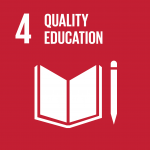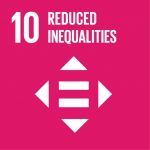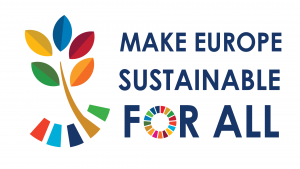When we are talking about oppression, we usually receive positive, neutral or even negative answers. Neutral is another shade of negative. Witnessing oppression and being neutral about it, is indeed part of the problem. Knowledge about oppression can give us insights and the power to say, “yes, I acknowledge”, but is this enough? and why sensitivity to the diversity of oppression is what we need? To answer these questions, I will rely on the Bennett scale for intercultural sensitivity but in relation to the diverse forms of oppression rather than the diverse forms of cultures.
1. Denial of the existence of oppression
The first stage is "denial". This stage reminds me of the time when I posted about a campaign to reclaim freedom of movement as an essential human right for all. A person with a US citizenship and passport commented under my announcement “Oh, why this campaign exists? Freedom of movement is now under threat?”. This illustrates how when we live in our “privileged bubble” we become unaware. In this stage we do not have knowledge or feelings about the reality of others.
2. Defense against the acknowledgment of oppression
The second stage is “defense”. When we hear people talking about the oppression they experienced, we sometimes hear some negative and defensive answers like “Yeah they are now playing the racial card!”. When we analyse the metaphor of “Playing the racial card” we can indicate that people who use it are putting themselves in a defensive position. Where this card is played against them or against some of their rights. People in this stage are still not fully aware about the existing oppression. They are definitely not aware nor sensitive toward the existence of other realities beyond their own socio-political reality. In this stage, people are lacking knowledge and feelings about “the others”.
3. Minimization of the existing oppression
From the “defence stage”, with the right learning tools for critical thinking, people move to the “minimization” stage. In the minimization stage we start to partly acknowledge the existence of oppression. Yet, in this stage we are still looking at it from our own reality and from our own centric view. This is why you hear often people in this stage saying things like “You have no excuse not to do it because the sky is the only limit!”. People in this stage are partly aware that in our world some people are more equal than others. Yet, they are still not fully aware nor sensitive that the sky is not the limit for everyone. They are not aware about the diversity of oppression. Here I shall point out the "internalised oppression". Oppression is not always from one group to another. Sometimes it happens within the same group. By “Minimizing” the privileges and the oppression caused by our hierarchical system these people are still observing oppression from their own 1. Individualistic reality or 2. Socio-political reality.
4. Acceptance of the diversity of oppression
The first stage where we are breaking out from centrism to relativism is the “acceptance stage”. In the acceptance stage we give up on our individualistic or socio-political centric reality. We accept that other realities indeed exist. In this stage we acknowledge that we know nothing and we accept and understand that we need to learn more from and about the diversity of oppression.
5. Adaptation to the diverse realities of oppression
After acceptance we reach to the “adaptation stage” in this stage we work on our knowledge and ability to empathise with others. We adapt to other narratives and realities. It makes us sensitive and able to avoid the risk of becoming an oppressor or supporting the oppressive system in our daily lives. But to combat oppression and inequalities this stage is still not enough.
6. Integration to combat the diverse shades of oppression
The final stage is “Integration”. In this stage we are on the top level of empathy and awareness. We are able to connect to the suffer of others not only by mind but also by heart. This will make us motivated and able not only to accept and adapt but also to integrate and to take an Action! People in this stage will take the action to stand up for others and to speak out against inequalities and oppression!
Finally, the answers of the two questions 1. How to become sensitive to the diversity of oppression? and why knowledge is not enough are revealed. 1. We can become more sensitive to the diversity of oppression by increasing the quality of our educational system. This is by including critical thinking through the pedagogy of the oppressed, the experiential learning tools and non-formal educational tools. 2. This is because knowledge itself is important but not sufficient to stimulate empathy. Empathy is what makes us sensitive. Being sensitive is what makes us able to take actions because acknowledging oppression is not enough. We need actions to make the change. Being aware is the first step but we cannot be fully aware if we are not sensitive.
""""""""""""""""""""""""""""""""""""""""""""""""""""""""""""""""""
Samar Zughool is a researcher on feminist movements and public policy making in democratization. She holds a Master’s degree with excellency from the Faculty of Social Sciences at the University of Ljubljana, and holds a Bachelor’s degree in French language and literature from the University of Jordan. She is an intercultural learning and communication trainer and project coordinator.
If you wish to discuss this article or have any comments, email me to: samar.mediator@gmail.com.



